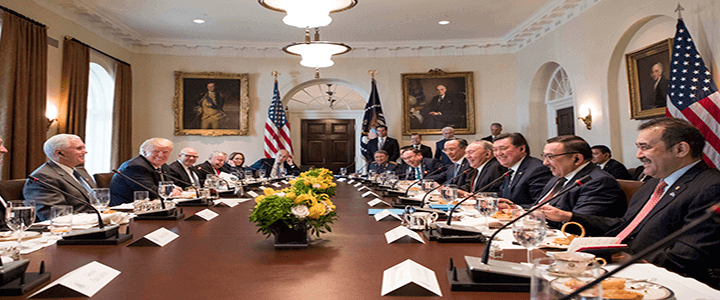When the New York Times opted to publish the now famous (or infamous) opinion piece from an alleged White House insider, they expected to set off a firestorm – and they succeeded. Tom McCuin described here in ClearanceJobs how publishers had already established the “proof of concept that anonymity sells books.” He cites an example going as far back as 1992, during the Clinton administration, with the book “Primary Colors.”
Searching for the author of the New York Times Op-Ed
Then like now, news teams across the country, including within the NYT are searching for the identity of the individual(s) who authored the opinion piece. The author(s), cherry picked words to insert and weave into their diatribe which would provide clues – or red herrings – to those trying to sleuth out their identity.
During a recent media scrum (that’s the term for when members of the media shout out questions at an individual as they pass in proximity to the media corral) one member of the media queried President Trump, as to whether the Department of Justice (DOJ) would be called in to investigate. Unsurprisingly, the President readily agreed that was an excellent idea.
Such an investigation is unlikely to occur.
Renato Mariotti, shared an articulation within Politico as to why the author’s actions have no legal liability, though “failing to follow directives is obviously a fireable offense.”
From this writer’s optic, there is no evidence that a crime has taken place, beyond breaking trust with one’s President.
Breaking Trust vs. Breaking the law
The individual(s) who authored this “resistance” piece no doubt is an individual who enjoys the trust and confidence of the United States, and most probably given the access to the President described, has been granted a Secret or Top Secret security clearance as evidence of that trust.
James Harris, a former FBI official, opined, “While it’s easy to rationalize back-door leaks as ‘for the greater good,’ and justified, reality will set in when these people apply to another position one day. If a background investigation gets close to the truth, or a polygraph question hits too close to home, more and more deception becomes likely. If, instead of following real ‘whistleblower’ processes, you compromise your integrity for political gain, how do you look at yourself in the mirror and say, ‘I’m a person who should be recommended for a position of trust with the US Government?'”
While the public is deciding how they feel, as Harris notes, the author(s) should be thinking about what may be coming downstream.
Was the NYT right to publish This op-ed?
This is “the press reports, you decide journalism” at play, As Ken Doctor so crisply articulates in his Newsonomics piece. General Michael Hayden (former Director of the CIA and NSA) opined that perhaps the author viewed this moment in time as “in emergency break glass” and opted to engage in “secretive administrative warfare.” Hayden continues how perhaps public warfare (his words) is more appropriate.
But was publishing the piece the right thing to do? As Renato Mariotti points out, no classified information was revealed. Andrew Rudalevige, of The Washington Post notes, “Insulting the president, anonymously or not, does not constitute treason.”
But the author(s) do have a secret, and the NY Times is in on it. They broke trust.
In the future they may well be faced with either being honest or deceptive during a future reinvestigation for their security clearance. They made a decision which will carry consequences. Honesty may exclude them from being selected for the position, and lying to the FBI interviewer will be a federal crime when discovered – as so many have learned in recent months.
Trust has been ruptured. And isn’t trust the capstone of employment within the U.S. government?




